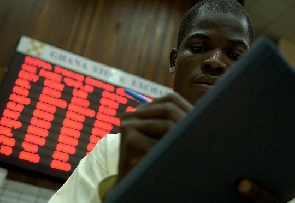 Ghana’s equities market is set to gain a major positive momentum
Ghana’s equities market is set to gain a major positive momentum
Ghana’s equities market is set to gain a major positive momentum from government’s policy to permanently exempt taxes on capital gains on listed securities.
The current capital gains tax exemption for listed securities will expire at the end of 2021. The exemption was first introduced in 1990 at the start of operation of the Ghana Stock Exchange (GSE). It was renewed at various times until 2015, when it was abolished, and then reintroduced in 2016.
The exemption, critical to attracting investment flows, has helped make the market competitive, especially in the African region, with capital gains tax exemptions in place in many markets including Nigeria.
Announcing the decision to make the exemption permanent in his 2021 budget speech on March 12, the interim Finance Minister, Osei Kyei-Mensah-Bonsu, said government is continuously making efforts to develop and deepen Ghana’s capital market.
“The reinstatement of tax exemptions on capital gains on listed companies has encouraged investors, particularly local and retail ones, to actively participate in the market. In view of this positive development, government has decided to make this tax-exempt initiative permanent.”
The Technical Consultant of the GSE, David Tetteh, said in an interview with Business24 that the policy gives the GSE a long-term competitive advantage over its peers, especially from a foreign portfolio manager point of view.
Courage Kingsley Martey, a senior research analyst with Databank Research, also said in an interview that the policy should increase the upside potential of the general market in the short to medium term, subject to general economic conditions.
However, he said the policy is only one of the many factors required to improve the global competitiveness of the market.
At the moment, market liquidity is not high enough to attract significant volumes of funds, and there is the need for more companies from the various sectors of the economy to list on the market, he explained.
“As things stand, market capitalisation may be as high as over GH¢57bn, but only a few stocks can really be counted as liquidity stocks, in terms of how frequently they trade,” he said.
As the stock market expands to cover all the sectors of the economy, it would truly serve as a leading indicator of economic activity and be used as a proper gauge of activity or expectations across the various sectors of the economy, as seen in other advanced or emerging markets, he added.